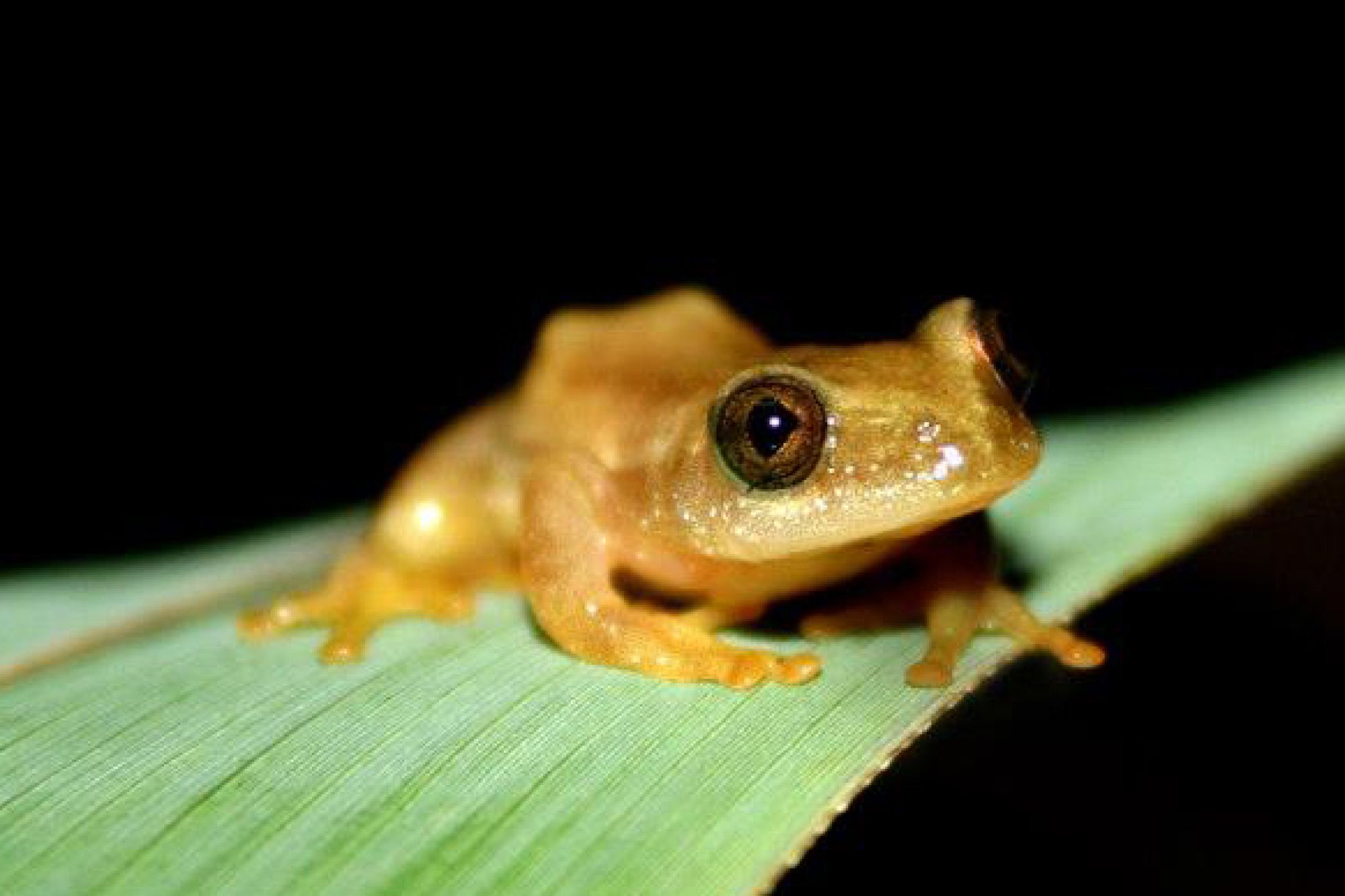
Exciting Frog Monitoring Programme Coming Soon!
The endangered Knysna leaf-folding frog (Afrixalus knysnae) occurs at fewer than ten locations, one of which is Groenvlei on Goukamma Nature Reserve near Sedgefield. Very little is known about the size or health of this frog population, but possible threats include degradation of its reedbed habitat and water quality degradation caused by invasive alien Common Carp in the vlei. Frogs are excellent indicators of environmental change, and CapeNature will be launching a frog monitoring programme at Groenvlei in the spring of 2024.

Knysna leaf-folding frog (Afrixalus knysnae). Photo Credit: Faansie Peacock
In preparation for this programme, a field trip to Goukamma was led by CapeNature restoration ecologist Dr Andrew Turner, where he demonstrated frog monitoring methods to Landscape East staff members, CapeNature Groen Sebenza interns and Dr Minke Witteveen (a post-doctoral fellow at Nelson Mandela University). This included the use of the acoustic Spatially explicit Capture Recapture method (aSCR) to estimate species densities. This method uses multiple microphones attached to a recorder to record frog calls at different distances within a given area. Since it was outside of their breeding season, no Knysna Leaf-folding Frogs were recorded. However, other amphibians seen and/or heard were the painted reed frog, raucous toad, bronze caco, clicking stream frog, plain rain frog and sand rain frog. Under the guidance of Dr Turner, Landscape East staff will monitor the Groenvlei population during the 2024 breeding season.
Plain rain frog, Breviceps fuscus.
Painted reed frog, Hyperolius marmoratus, in full song.





